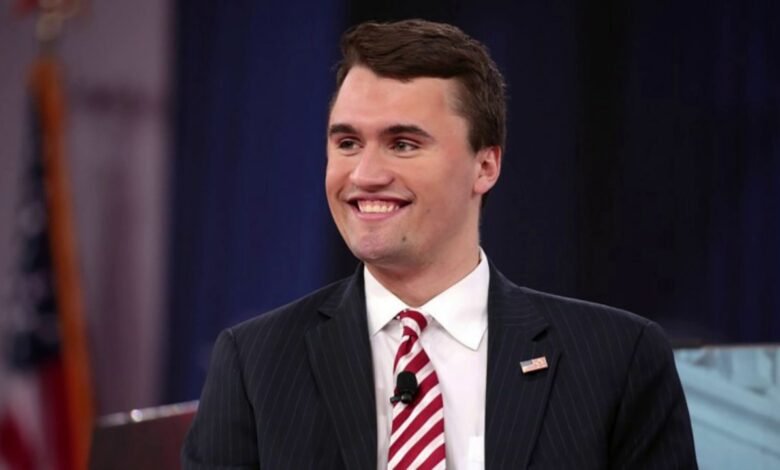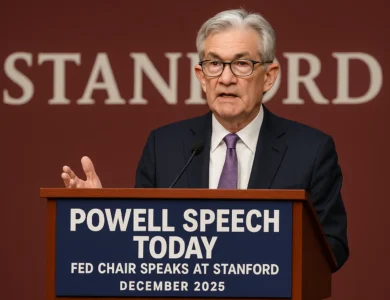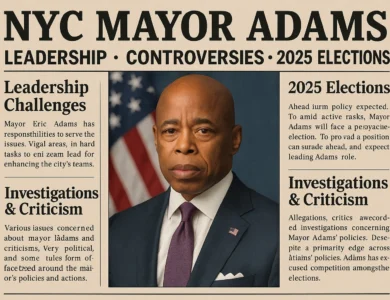
In the polarized landscape of American politics, few events generate as much heated discussion as Charlie Kirk Day. This controversial observance, dedicated to honoring the founder of Turning Point USA, has become a lightning rod for criticism across various sectors of society. While supporters view it as a celebration of conservative activism and youth engagement, critics of Charlie Kirk Day argue that the event represents something far more problematic.
The emergence of Charlie Kirk Day reflects the broader cultural and political divisions that define contemporary America. Named after the prominent conservative activist who founded Turning Point USA at age 18, this observance has sparked intense debates about the role of political ideology in educational institutions, the nature of campus activism, and the boundaries of acceptable political discourse.
Charlie Kirk controversy extends far beyond simple partisan disagreement. The criticisms leveled against this day touch on fundamental questions about democratic values, educational integrity, and the responsibility that comes with political influence. From concerns about the spread of misinformation to allegations of promoting divisive rhetoric, the opposition to Charlie Kirk Day encompasses a wide spectrum of grievances that merit serious examination.
Understanding why Charlie Kirk Day criticism has become so widespread requires delving into the specific actions, statements, and policies associated with both Kirk himself and the organizations he represents. The controversy surrounding this observance illuminates broader tensions within American society about how we commemorate political figures and what values we choose to celebrate publicly.
This comprehensive analysis explores the five most significant reasons why critics oppose Charlie Kirk Day, examining each concern in detail while considering the broader implications for American political discourse and democratic participation.
1. Allegations of Promoting Misinformation and Conspiracy Theories
The Core of the Misinformation Concerns
One of the primary reasons critics slam Charlie Kirk Day centers on allegations that Kirk has consistently promoted misinformation and conspiracy theories through his platform. These Charlie Kirk Day opponents argue that dedicating a day to honor someone who has spread unverified claims undermines the importance of factual accuracy in public discourse.
Political misinformation concerns have become increasingly prominent in discussions about Charlie Kirk controversy. Critics point to various instances where Kirk has made statements that fact-checkers have disputed or debunked. These range from claims about election integrity to assertions about various policy issues that lack supporting evidence.
Impact on Educational Institutions
The educational controversy surrounding Charlie Kirk Day is particularly pronounced because Turning Point USA operates extensively on college campuses. Critics argue that promoting someone who allegedly spreads misinformation sends the wrong message to students about the importance of critical thinking and evidence-based reasoning.
Conservative activism criticism in this context focuses not on the right to hold conservative views, but on the methods used to promote those views. Educators and administrators have expressed concern that celebrating Charlie Kirk Day might legitimize approaches to political engagement that prioritize rhetoric over factual accuracy.
2. Concerns About Campus Political Manipulation
The Turning Point USA Campus Strategy
Charlie Kirk Day critics frequently cite concerns about the tactics used by Turning Point USA on college campuses. The organization’s approach to campus political activism has drawn scrutiny from various academic and civil liberties organizations who argue that the group’s methods cross ethical boundaries.
The political manipulation allegations against Kirk and his organization include claims that Turning Point USA has engaged in activities designed to suppress opposing viewpoints rather than encourage healthy political debate. Critics argue that Charlie Kirk Day effectively celebrates these controversial tactics.
Faculty and Student Opposition
Many Charlie Kirk Day opponents within academic institutions argue that the observance creates a hostile environment for open intellectual inquiry. They contend that Kirk’s approach to conservative student activism often involves confrontational tactics that undermine the collaborative learning environment that universities strive to maintain.
The academic freedom concerns raised by critics extend beyond disagreement with Kirk’s political positions to include worries about how his methods might influence student behavior and campus discourse more broadly.
3. Divisive Rhetoric and Polarization Concerns
The Nature of Political Discourse
A significant portion of Charlie Kirk Day criticism focuses on the style and tone of Kirk’s political communication. Critics argue that his approach to political polarization contributes to the breakdown of civil discourse in American politics rather than promoting constructive dialogue.
Divisive political rhetoric has become a central concern for those who oppose Charlie Kirk Day. They argue that celebrating someone whose communication style is often confrontational and inflammatory sends the wrong message about how political disagreements should be handled in a democratic society.
Impact on Community Relations
Charlie Kirk controversy extends into concerns about how his rhetoric affects relationships between different groups within communities. Critics argue that the divisive nature of some of Kirk’s statements has contributed to increased tensions between different political, racial, and religious groups.
The social division concerns raised by Charlie Kirk Day opponents reflect broader worries about the health of American democracy and the importance of maintaining some level of civility and mutual respect in political discourse.
4. Questions About Transparency and Funding
Financial Transparency Issues
Charlie Kirk Day critics have raised significant questions about the transparency of funding sources for both Kirk’s activities and Turning Point USA operations. These funding transparency concerns center on the organization’s reluctance to fully disclose its major donors and the sources of its substantial budget.
The dark money criticism associated with Charlie Kirk controversy reflects broader concerns about the influence of undisclosed donations on political activism, particularly on college campuses where students may not be aware of the financial interests behind the political messages they encounter.
Accountability Questions
Political accountability issues form another major component of opposition to Charlie Kirk Day. Critics argue that celebrating someone whose organization operates with limited transparency undermines principles of democratic accountability and informed citizen participation.
These organizational transparency concerns extend beyond simple curiosity about funding sources to include questions about whether students and the public have sufficient information to evaluate the motivations behind political messages they encounter.
5. Ideological Extremism and Hate Speech Allegations
Extremist Content Concerns
Perhaps the most serious Charlie Kirk Day criticism involves allegations that Kirk has promoted or failed to adequately distance himself from extremist viewpoints. Political extremism concerns have led many critics to argue that Charlie Kirk Day legitimizes dangerous ideological positions.
Hate speech allegations against Kirk and associated figures have prompted widespread opposition to the observance. Critics argue that celebrating someone who has been accused of promoting discriminatory views sends a harmful message, particularly to marginalized communities.
Platform Responsibility Issues
The platform responsibility debate surrounding Charlie Kirk controversy centers on questions about what level of accountability public figures should bear for the views expressed by those they associate with or provide platforms for speaking.
Charlie Kirk Day opponents argue that Kirk’s failure to consistently reject extremist viewpoints makes him an inappropriate figure for public celebration, regardless of his other political activities or achievements.
The Broader Implications of Charlie Kirk Day Opposition
Democratic Discourse and Civil Society
The opposition to Charlie Kirk Day reflects deeper concerns about the health of American democratic discourse. Critics argue that the methods and messages associated with Kirk undermine the kind of respectful, fact-based political engagement that democracy requires to function effectively.
Conservative activism criticism in this context should not be understood as opposition to conservative political views themselves, but rather as concern about specific tactics and approaches that critics believe damage the political process.
Educational Values and Youth Development
The educational controversy surrounding Charlie Kirk Day highlights important questions about what values and approaches to political engagement should be promoted among young people. Critics argue that celebrating Kirk sends the wrong message about how to participate constructively in democratic processes.
Conclusion
The widespread criticism of Charlie Kirk Day stems from fundamental concerns about democratic values, educational integrity, and the quality of political discourse in America. While supporters view the observance as a celebration of conservative activism and youth engagement, critics of Charlie Kirk Day see it as legitimizing problematic approaches to political participation.
The five major areas of criticism – allegations of promoting misinformation, concerns about campus political manipulation, divisive rhetoric and polarization, questions about transparency and funding, and ideological extremism allegations – reflect deeper tensions within American society about the boundaries of acceptable political behavior and the values we choose to celebrate publicly.
Understanding these criticisms is essential for anyone seeking to comprehend the broader debates about political engagement, educational values, and democratic participation that define contemporary America. Whether one agrees with the critics or not, the concerns they raise about Charlie Kirk Day illuminate important questions about the kind of political culture we want to cultivate and the standards we should expect from public figures who seek to influence political discourse.
The Charlie Kirk controversy ultimately serves as a case study in the challenges facing American democracy in an age of increasing polarization and decreasing trust in traditional institutions. The debates surrounding Charlie Kirk Day will likely continue as long as these broader tensions persist in American political life.
Read More: Jayden Daniels Injury: Latest News and Details






